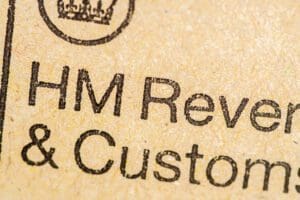Taxpayers have been warned to settle their tax bills by 31st July or risk incurring late payment interest at 8.25%, as HMRC intensifies its crackdown on unpaid liabilities.
The alert comes from Blick Rothenberg, a leading audit, tax and business advisory firm, which says taxpayers who have yet to pay their second payment on account for the 2024/25 tax year must act quickly to avoid financial penalties.
“From May 2022, HMRC increased late payment interest from 3.5% to 8.25% as part of their agenda to crack down on people that owe tax,” said Tom Goddard, Senior Associate at Blick Rothenberg. “People who owe money for the 2024/25 tax year must pay their bill as soon as possible.”
What are payments on account?
Payments on account are advance payments made towards the next year’s income tax bill, calculated based on a taxpayer’s previous year’s liability. They are paid in two instalments — one by 31st January, and the second by 31st July.
For example, someone with a £10,000 second payment on account who delays payment until 31st December 2025 would face nearly £350 in interest charges, Goddard explained.
“This is also an incentive to get your tax return submitted early,” he added. “By doing so, you ensure your July payment is accurate — rather than risk overpaying and waiting for a refund.”
Can payments be reduced?
Yes — if a taxpayer reasonably expects that their income for 2024/25 will be lower than in 2023/24, they may reduce their payments on account. However, Goddard warned that over-reducing the figure could lead to interest charges and potential penalties if the estimate proves too low.
“Now that the 2024/25 tax year has ended, those who have already made a claim to reduce their payments on account should check whether this was appropriate based on their final income levels and, if necessary, adjust their payments,” he said.
Who needs to pay?
Payments on account generally apply to those with self-employment income, rental profits, or investment income, where tax isn’t deducted at source.
Taxpayers do not need to make payments on account if:
• Their 2023/24 tax liability was under £1,000, or
• More than 80% of their tax was collected through PAYE.
Capital Gains Tax (CGT) is also excluded from payments on account.
What if you can’t pay?
Goddard urged those struggling financially to contact HMRC directly as soon as possible.
“HMRC may offer a payment plan to help alleviate some of the financial burden, allowing payments to take place over a more manageable timeframe,” he said.
With just days left before the 31st July deadline, taxpayers are advised to check their status, file their returns if possible, and take action — or risk costly charges and escalating interest in the months ahead.
